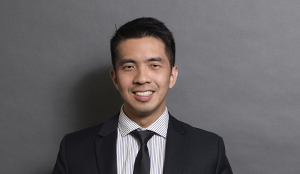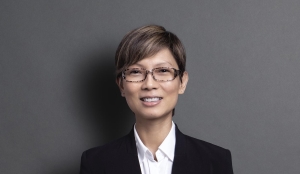Global Cartel of Capacitor Manufacturers fined for Anti-Competitive Conduct
Financial penalties totalling S$19.5 million (approx. US$14.7 million) is largest imposed to-date; Cartel's conduct stretches back to at least 1997; Investigations commenced as a result of leniency application by former cartel member; Penalty reduction of up to 100% for leniency applicants; Case underscores need for regular up-to-date internal compliance reviews.
On 5 January 2018, the Competition Commission of Singapore ("CCS") issued an Infringement Decision ("ID") against 5 undertakings for their infringement of the Section 34 Prohibition1 of the Competition Act (Chapter 50B) ("Act") by participating in anti-competitive agreements and/or concerted practices to fix prices and exchange information in relation to the sale of Aluminium Electrolytic Capacitors ("AECs") in Singapore. The 5 undertakings are:
- Panasonic Industrial Devices Singapore and Panasonic Industrial Devices Malaysia Sdn. Bhd. ("Panasonic");
- Rubycon Singapore Pte. Ltd. ("Rubycon");
- Singapore Chemi-con (Pte.) Ltd. ("SCC");
- Nichicon (Singapore) Pte. Ltd. ("Nichicon"); and
- ELNA Electronics (S) Pte. Ltd. ("ELNA").
The Parties were found to have met regularly in Singapore and Japan from as early as 1997 until 25 March 2013 (up to 25 February 2009 for Panasonic and ELNA when both ceased their participation) to exchange confidential and commercially sensitive information pertaining to their product pricing and agreements on various price increases. These meetings were attended by director and manager level employees of the Parties.
As the Section 34 Prohibition only came into force on 1 January 2006, CCS determined that the period of infringement for each Party commenced from 1 January 2006 and ceased on the last meeting in Singapore that the respective Party attended.
CCS determined that the Parties' conduct at the meetings were a single continuous infringement of the Act having the object or effect of preventing, restricting or distorting competition in Singapore. Specific agreements and/or concerted practices as a result of Parties' conduct included:
- Agreements and information exchanges on price increases for AECs between 2006 and 2008
Following agreements reached on price increases in Japan, Parties arrived at agreements to increase prices for the sale of AECs in to customers in Singapore. The price increases were reportedly a result of, in whole or in part, increases in material costs and fluctuations in exchange rates. Parties also discussed and planned price increases to specific customers, and to facilitate negotiations with affected customers.
- Agreements to resist price reduction requests from customers
The Parties cooperated to collectively resist customers’ price reduction requests, and collectively agreed not to lower prices of AECs thereby allowing the Parties to maintain their prices and market shares.
- Exchange of information on Request for Quotations issued by customers
Parties discussed pricing to specific Singapore customers, including percentage price increases of AECs that they intended to quote in response to RFQs, and their intention or decision not to grant a price reduction to specific customers.
Investigations into the Parties commenced on 29 May 2014 as a result of a leniency application made on behalf of Panasonic. Leniency applications incentivise undertakings to report cartel behaviour and conduct. Depending on the stage of the investigations at which the leniency application is received and the order in which the leniency applications are received, evidence already in CCS's possession as well as the quality of information provided by the undertakings, leniency applicants can be entitled to a immunity from financial penalties (if investigations have not commenced) or a reduction of up to 100% of the financial penalties.
In total, 4 of the 5 Parties submitted leniency applications in the following order:
- Panasonic
Leniency application: 4 October 2013
Leniency Marker/Queue Entry: 17 October 2013
- Rubycon
Leniency application: 8 August 2014
Leniency Marker/Queue Entry: 24 August 2014
- SCC
Leniency application: 20 November 2014
Leniency Marker/Queue Entry: 25 November 2014
- ELNA
Leniency application: 21 January 2015
Leniency Marker/Queue Entry: 23 January 2015
Being the first leniency applicant, and taking into consideration several other factors, Panasonic received a 100% reduction of its financial penalty. The exact figures for the reductions of the financial penalties imposed on the remaining 3 Parties were not published but they were entitled to up to a 50% reduction as they were not the first undertaking to come forward with a leniency application.
It is further reported that there have been investigations in relation to AECs by competition authorities of the United States, China, European Union, Japan, Korea and Taiwan. CCS has had exchanges and cooperated with a number of these competition authorities on these investigations.
This case highlights the need for companies with a presence in Singapore to implement effective competition compliance programmes. An effective compliance programme should equip a company’s representatives with the knowledge and awareness to identify infringing conduct and the appropriate channels to report such conduct.
The importance of ensuring the effectiveness of such a programme cannot be understated. If an infringement has occurred, in the context of cartel activities, if the company identifies the infringing conduct and is the first to make a leniency application providing CCS with substantial information on the cartel, the company may qualify for full immunity or complete reduction of the financial penalties.
However, an ineffective program may mean that the company cannot reap the full benefits of the immunity. For instance, in its findings, CCS noted that Nichicon had implemented a compliance programme since 2002 but was ineffective with the infringing conduct persisting nonetheless. This was noted as a reason why the immunity was reduced in the case of Nichicon.
Company representatives should also be cautious when attending meetings with competitors. In this case, meetings were originally convened in Japan to discuss the handling of lead in capacitors but eventually extended to meetings in Singapore to discuss and exchange price information and quotations.
This article is produced by our Singapore office, Bird & Bird ATMD LLP, and does not constitute legal advice. It is intended to provide general information only. Please contact our lawyers if you have any specific queries.
Section 34 of the Competition Act (Chapter 50B) prohibits any agreements between undertakings, decisions by associations of undertakings or concerted practices which have as their object or effect the prevention, restriction or distortion of competition within Singapore.

